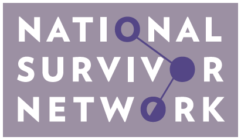February 23, 2022 | Category: Values Orientation
Several of our values in our clarified values statement address racism and racial equity directly. Racial justice is essential to ending trafficking. Beyond and in addition to that, the intertwined histories of forced or exploited labor and racism in the United States means that racial justice work is anti-trafficking work. We will never end human trafficking without racial justice.
Injustices experienced disproportionately by people of the global majority are rooted in systemic and historic oppression of these people and communities. We work to mitigate the effects of this oppression, while simultaneously acting to dismantle the power imbalances faced by our diverse survivor communities. We mitigate impacts by practicing harm reduction. We dismantle power imbalances by continuing to organize against systemic, historical, and structural oppression and by transforming the conditions that foster violence. These two practices – harm reduction and structural transformation – are not incompatible. After all, we wouldn’t let people starve to death while we continue to work for food justice.
We aim for our members to practice radical empathy and do our work in solidarity with impacted and underserved communities and their fight for collective liberation from oppression. That fight is ongoing, and power dynamics do impact what choices are available to us. That said, neither marginalized identities nor a history of complex trauma negates an individual’s consent or bodily or sexual autonomy. We can acknowledge the impacts of power dynamics on what choices are available or feel accessible without denying an individual’s creativity, resilience, and choice, and without paternalistically trying to “protect people from themselves.”
We recognize that the 13th amendment shifted the locus of slavery and abolition in the United States into prisons and mass incarceration, and we deeply honor the ongoing racial justice work being done to dismantle this and other forms of structural and systemic racism. This work is carrying forward the legacy of 19th-century abolition. For this reason, the NSN seeks to end human trafficking without co-opting the language of slavery or abolition (See below for links).
While people are still enslaved in many parts of the world and all forms of slavery fit the definition of human trafficking, not all forms of human trafficking fit the definition of slavery. We acknowledge that the use of this language and these metaphors, especially in the U.S. historical context of chattel slavery, obscures, ignores, and erases the ubiquitous anti-Black violence that was the foundation of our country and our movement, and is still present in our movement and in the lives of survivors.
In alignment with this stance, the NSN opposes the use of forced or exploited labor in prisons. The 13th Amendment states; “Neither slavery nor involuntary servitude, except as a punishment for crime whereof the party shall have been duly convicted, shall exist within the United States, or any place subject to their jurisdiction.” This loophole folded into the 13th Amendment was intended to be exploited and weaponized against Black people in an effort to maintain foundational white supremacist systems of slavery. It has led to an increase in racialized criminal codes that fuel mass incarceration, which disproportionately impact BIPOC families and communities while expanding the wealth of privately-owned, for-profit prisons, and, as an extension, reinstating the de facto enslavement of Black people as property.
Regarding Language of “Slavery,” see:
Using “modern slavery” is not recommended to describe human trafficking
Rethinking “Modern Day Slavery”
Human Trafficking, Chattel Slavery, and Structural Racism: What Journalists Need to Know
Words Matter: Why We No Longer Call Trafficking “Slavery” and Anti-Trafficking “Abolition”
Reconsidering the Use of the Terminology “Modern Day Slavery” in the Human Trafficking Movement
Continue on to the fifth in our values orientation series, “Human Rights and Labor,” or view our full values statement here.
